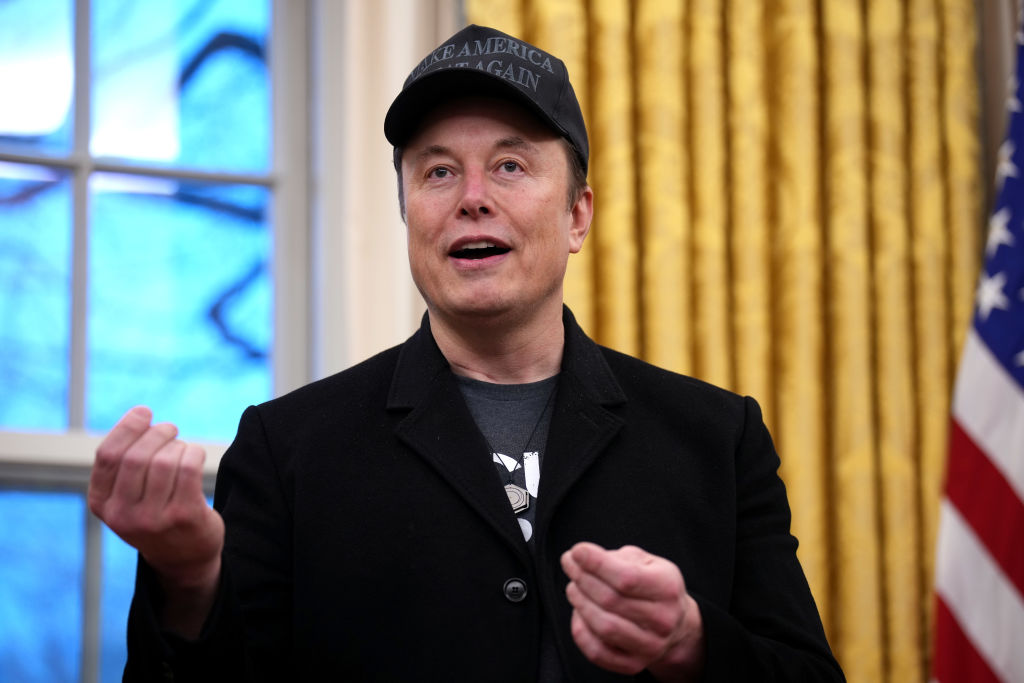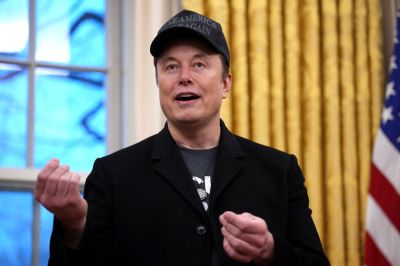There is a cliché about not letting the perfect be the enemy of the good, and it’s a fine piece of wisdom as far as such maxims go, but the perfect is not the only enemy of the good.
The bad, for example, is also the enemy of the good.
My friends over at National Review have published an editorial that is not good, and not because it is less than perfect but because it is bad. And one of the bad things it does is engage in a bit of intellectual dishonesty—and, not being eager to bruise any feelings, I am sorry the term is needed here—about DOGE, which is that its critics are judging it by unrealistic standards: “One ought not to let the perfect be the enemy of the good,” they write. This is, of course, an example—better than good and almost perfect—of begging the question. It is a bright red flag to mark a sickly argument.
Fond as Trump is of the word “perfect,” no non-insane person has ever suggested perfection as a standard for the Trump administration. Decency and competency would represent shocking overperformance of all sensible expectations.
But there’s no danger of such overperformance at the moment.
“Thus far,” the editors write, “DOGE has represented nothing more dramatic than an audit of federal spending of the sort in which the president of the United States — acting via any agent he sees fit to name — is self-evidently permitted to engage. There is nothing intrinsically wrong with Elon Musk playing accountant for President Trump, providing that he does not act in contravention of Trump’s wishes or trample on any of the prerogatives that the American system accords to Congress.”
But that is not quite right—and not quite a full and honest accounting, either. No, Elon Musk is not personally issuing orders to fire employees and cancel programs, but the formal camouflage here is pretextual. Offices are, in fact, being gutted on DOGE’s say-so. And there is, in fact, a great deal wrong with Elon Musk playing accountant. For one thing, Elon Musk is not an accountant and doesn’t seem to be very good at it; for another, he is de facto exercising authority that cannot properly be delegated to an unaccountable “special” federal employee acting in secrecy in order to evade oversight and accountability. The consequences have been both chaotic and destructive.
And that is because Musk is leading a team of amateurs and incompetents. The Department of Agriculture, for example, acting on DOGE orders, fired a bunch of bird-flu experts whose services it desperately needs, only to immediately turn around and attempt to rehire them. The DOGE team does not seem to be able to reliably tell the difference between billions and millions when it comes to taxpayers’ dollars. DOGE plays fast and loose with its definitions of savings, calculating its results based on hypothetical maximums rather than actual sums. DOGE uses phony concern over “efficiency” to punish unfriendly media outlets such as Reuters and Politico, ordering federal agencies to cancel subscriptions to specific publications that have been critical of the president. DOGE’s own website is so poorly designed that it already has been hacked and defaced.
And then there is the larger matter of data security, which I am still digging into but will talk just a little bit about here. As the Washington Post reports, the DOGE team has fed sensitive data from federal systems into AI black boxes to analyze spending—and there is reason to suspect that this was not done in an entirely secure fashion. I am not prepared to go into the arcana at this time, but exploitable data about federal digital infrastructure has been showing up in places where it shouldn’t and where it hasn’t before. (This seems to be at least partly related to security issues that predate the Trump administration’s swearing in.) Given DOGE’s inability to secure its own website—and the fact that the project is run by a drug-addled troll who, however successful in his own field, has no particular expertise in the systems in question—there is no reason to be very confident in the digital security of the larger project.
And for what? DOGE is not cutting government spending in any meaningful way. Every indicator we have right now points to spending and debt that will be larger this year than last year and a debt that will be much larger at the end of the second Trump administration than at its beginning. Republican spending-cut plans right now are Trump-style plan-to-have-a-plan plans. Whatever forcing government agencies to cancel their subscriptions to Politico newsletters is about, it isn’t about putting the U.S. government on sound fiscal footing. Elon Musk insists that a “balanced budget” is happening. I’ll happily bet him everything in my bank account vs. everything in his that no such thing comes to pass during Trump’s presidency. As the editorial concedes, the Trump team has repeatedly made it clear that the big budget items—entitlement reform and tax reform in the deficit-reducing direction—are off the table. That’s a lot of stupidity and chaos for no meaningful fiscal progress.
So, Charlie National Review editors, there is more to talk about here than failure to achieve a state of administrative perfection. Because what we have here is an idiotic vandalism spree conducted by incompetents toward no useful end, possibly violating the law and likely creating data-security problems. No, that isn’t perfect. And it isn’t good. It is an unpolishable turd. This is what comes of leaping at opportunities to say something positive about the Trump administration wherever such opportunities can be detected—or imagined. It is not a good impulse, and by that I mean not an imperfect one but a bad one.







Please note that we at The Dispatch hold ourselves, our work, and our commenters to a higher standard than other places on the internet. We welcome comments that foster genuine debate or discussion—including comments critical of us or our work—but responses that include ad hominem attacks on fellow Dispatch members or are intended to stoke fear and anger may be moderated.
With your membership, you only have the ability to comment on The Morning Dispatch articles. Consider upgrading to join the conversation everywhere.